“Gedenkstätte für die
auf See Gebliebenen
aller Nationen
Mahnmal für eine
friedliche Seefahrt
auf freien Meeren”“Memorial for those
who remained on sea
of all nations
Memorial for
peaceful seafaring
on free seas.”Dedication of the Laboe Naval Memorial
I recently visited the Laboe Naval Memorial:
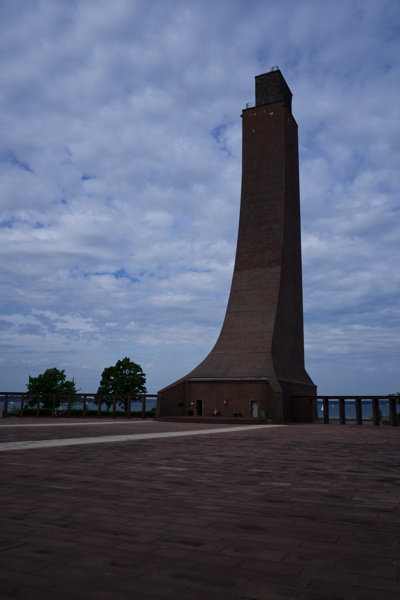
It’s got an interesting history, from a place for mourning the loss of life during the First World War (and some revenge/wounded pride), to remembering all those who died during both World Wars, to a memorial for all those who “remained on sea” (and still serving as a warning for peaceful seafaring).
I am somewhat unsure of these memorials. Sure, wars should be avoided. There is also no question that Nazi Germany did some of the worst atrocities in history during the Second World War — and that Germany today should show historic responsibility and take a stand against unjust wars, genocide, and other atrocities. And personally I think unjust wars, genocide and other atrocities should be opposed no matter which nation commits them. There is no such thing as a historic “Carte blanche“. But I always wonder whether we shouldn’t celebrate life instead of mourning the dead. I think children laughing at those sites would be a better example than bowing ones head and staying silent.
But regarding this memorial, personally, I was impressed. Not only due to its rededication to encompass all those who were lost at sea, to give those who remain a place to mourn. It also illustrates the losses of those at sea during both World Wars … rather strikingly.
It shows the number of dead sailors of both wars (at least, I assume that’s the number, 35.000 in World War I, and 120.000 in World War II), as remembrance/warning to the living:

and illustrates the losses by showing what it meant in ships/vehicles, in World War I:
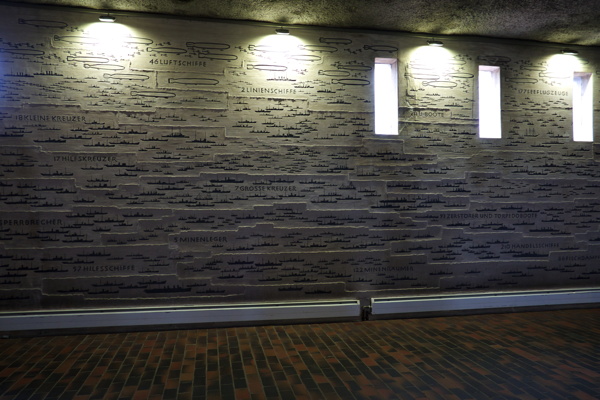
and World War II:
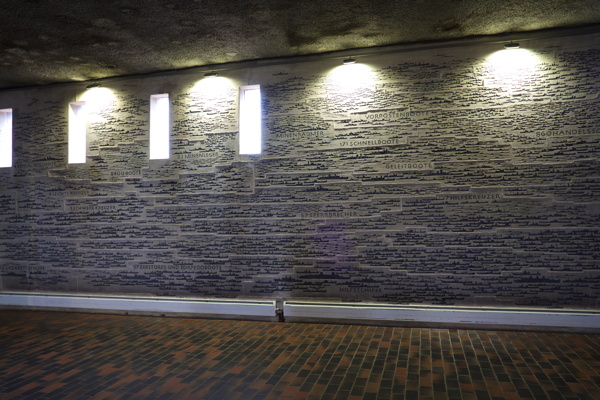
Even the ceiling is rather … suiting:
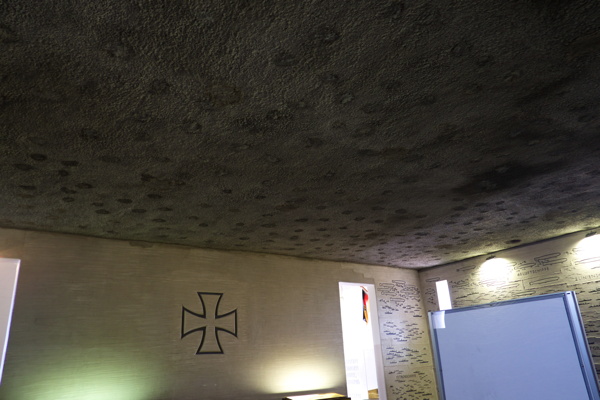
And yes, personally, I think it is personal responsibility that always should come first, and even soldiers should question whether the war they fight is just (and some did and were executed for it). But in the end, a soldier and/or sailor is just the acting organ of politicians. There is no glory in dying for one’s country, especially not in an unjust war, aptly put in this movie:
“You still think it’s beautiful to die for your country. The first bombardment taught us better. When it comes to dying for country, it’s better not to die at all.”
Paul Baumer in “All Quiet on the Western Front” (1930)
And visiting the U-995, I don’t really want to imagine what it was like to serve on a ship or submarine during a war. I agree with Jules Verne, or with his character Captain Nemo:
The sea is everything. It covers seven-tenths of the terrestrial globe. Its breath is pure and healthy. It is an immense desert, where man is never lonely, for he feels life stirring on all sides. The sea is only the embodiment of a supernatural and wonderful existence. It is nothing but love and emotion; it is the ‘Living Infinite’.
Captain Nemo in “20.000 Leagues Under the Sea” by Jules Verne
but the sea is also a harsh mistress, and an unpredictable force. Dealing with it and with whole nations trying to kill you …
Like said, I found the memorial very well done. As with most projects, there are usually persistent individuals behind it. In the case of this memorial, this person’s name is commemorated on the outside:
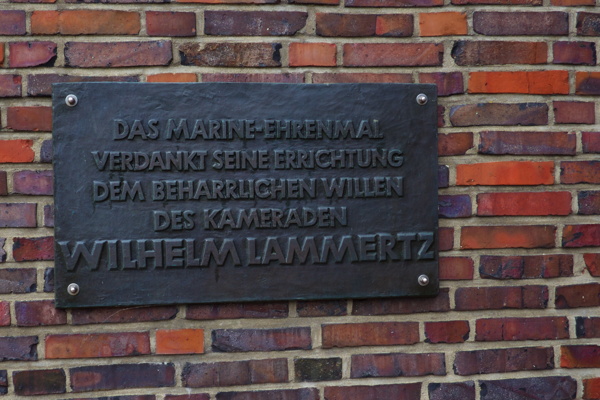
All in all, a memorial well worth remembering. Let’s hope memorials like these do their part in preventing another World War.